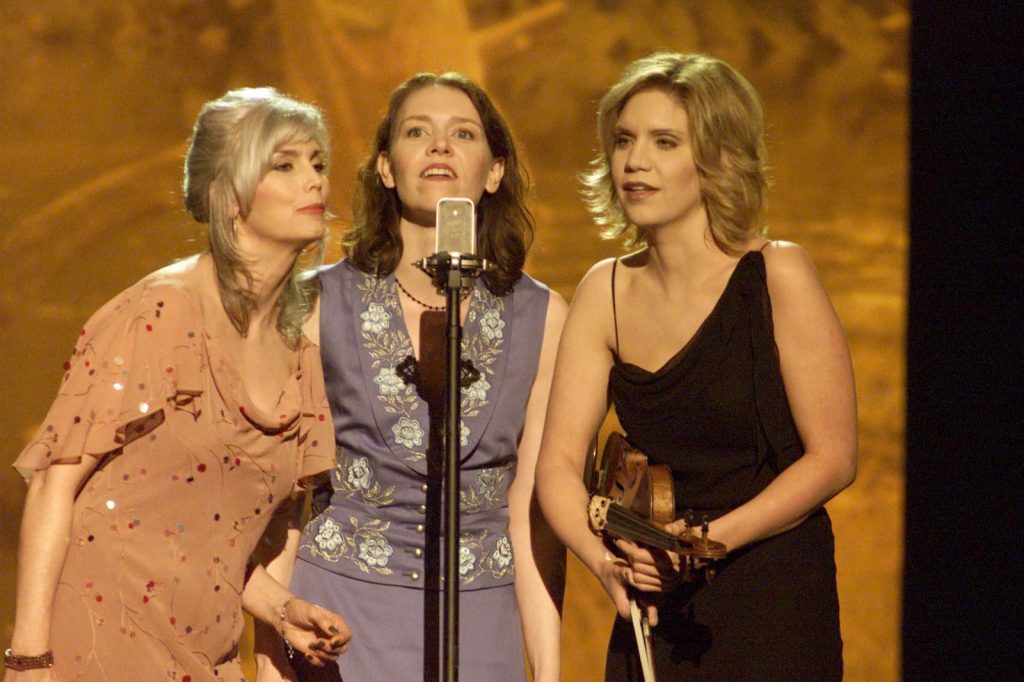
A haunting lullaby of solitude and resilience in the face of abandonment.
This poignant piece, performed by the ethereal trio of Emmylou Harris, Alison Krauss, and Gillian Welch, isn’t just a song; it’s a whisper from a bygone era, a lullaby steeped in the blues of loneliness and the quiet strength of survival. Its inclusion in the soundtrack of the Coen Brothers’ masterpiece, “O Brother, Where Art Thou?” (2000), further cemented its place in American musical folklore. The soundtrack itself achieved significant commercial success, reaching the top of the Billboard 200 chart and winning the Grammy Award for Album of the Year in 2002, bringing this traditional song to a wide audience. While specific chart positions for individual songs on the soundtrack are not readily available as it was sold as a complete album, the album’s overall success undoubtedly propelled “Didn’t Leave Nobody But The Baby” into the public consciousness.
The song’s roots burrow deep into the soil of traditional American folk music. It’s an adaptation of a much older folk song, passed down through generations, its origins shrouded in the mists of time. This particular rendition, arranged by Alan Lomax, Gillian Welch, Mrs. Sidney Carter, and T-Bone Burnett (with additional lyrics by Welch and Burnett), captures the raw, unvarnished essence of the original while adding a layer of contemporary sensibility. The arrangement highlights the stark beauty of the a cappella harmonies, creating an almost otherworldly atmosphere.
The story behind its inclusion in “O Brother, Where Art Thou?” is as captivating as the song itself. The film, set in rural Mississippi during the Great Depression, draws heavily on American folk and bluegrass traditions. The soundtrack, curated by T-Bone Burnett, became a phenomenon, introducing a new generation to the rich tapestry of American roots music. “Didn’t Leave Nobody But The Baby”, with its themes of abandonment and resilience, fits perfectly within the film’s narrative. It’s a song that speaks to the hardships faced by many during that era, a time of economic hardship and social upheaval.
The lyrics, simple yet profound, paint a picture of solitude. “Go to sleep little baby,” the singers croon, their voices blending in a haunting harmony, “Your mama’s gone away and your daddy’s gonna stay. Didn’t leave nobody but the baby.” These words evoke a sense of abandonment, of being left alone in the world. Yet, there’s also a sense of resilience, a quiet determination to carry on. The baby, though alone, is not forgotten. The song becomes a promise of comfort, a reminder that even in the darkest of times, there is still hope.
The performance by Emmylou Harris, Alison Krauss, and Gillian Welch is nothing short of magical. Their voices, each distinct yet perfectly complementary, weave together to create a tapestry of sound that is both haunting and beautiful. Harris’s voice, with its rich, seasoned timbre, provides a foundation of warmth and experience. Krauss’s crystalline soprano adds a touch of ethereal beauty. Welch’s voice, with its raw, earthy quality, grounds the performance in the realities of the song’s themes.
For those of us who remember those times or have heard tales of those times, this song evokes a powerful sense of nostalgia. It takes us back to a time when music was simpler, more direct, more connected to the human experience. It reminds us of the power of music to comfort, to heal, to tell stories that resonate across generations. “Didn’t Leave Nobody But The Baby” is more than just a song; it’s a piece of American history, a testament to the enduring power of folk music. It’s a lullaby that continues to resonate with listeners, reminding us of the enduring strength of the human spirit in the face of adversity. The inclusion of this track on the “O Brother, Where Art Thou?” soundtrack gave it a new life, introducing it to a new generation and ensuring its place in the American musical canon.